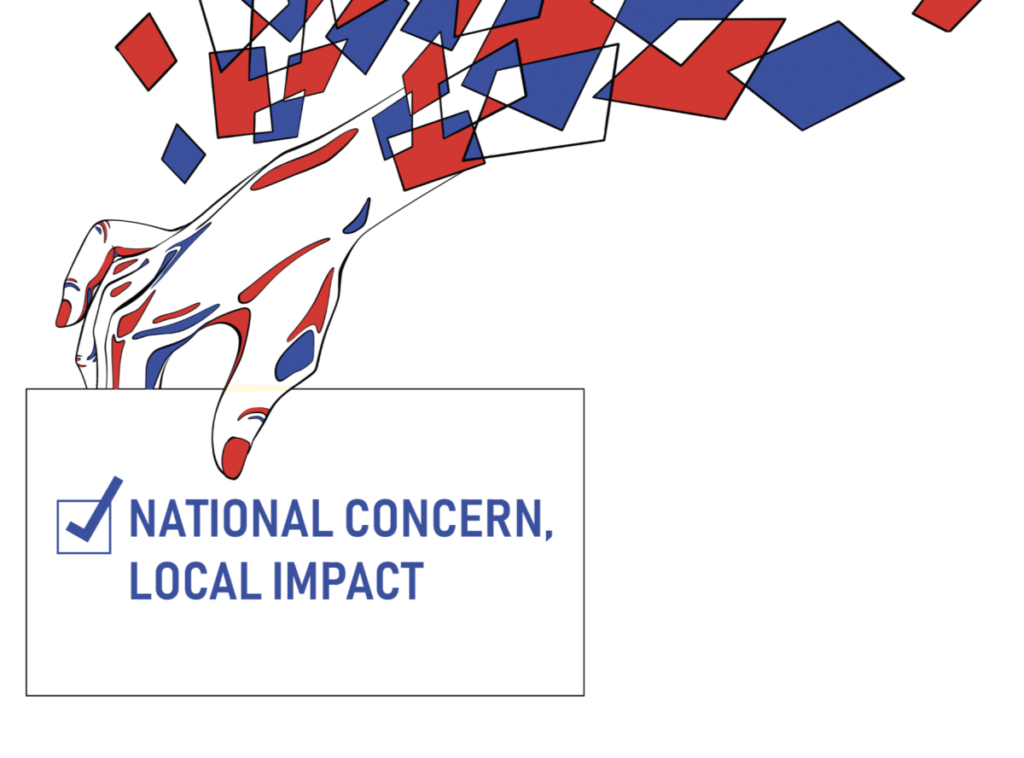This story is syndicated from El Estoque, the newspaper of Monta Vista High School in Cupertino, CA. The original version of the story ran here.
Often, world issues take center stage in our lives — we tend to follow national and global politics closely, focusing on the big, scary or exciting events from far away while overlooking the way national issues can play out close to home. On Nov. 8, 2022, the California General Elections were held, and the ballot included elections for City Council members. In this election, a mere 54.55% of registered voters in Santa Clara County cast a ballot, in comparison to the 84.76% who voted in the 2020 federal election.
However, the truth is that local politics are just as important in the lives of MVHS students as world and federal news, if not more. Although federal policies may have the greatest authority and importance, local politics determine how those policies play out on a human level.

According to California State University Fullerton news, local problems aren’t solved by a state senate or even national governments — instead, they’re directly influenced by local representatives. City elections allocate funding for local infrastructure. As people living with droughts, wildfires, high costs of living and more on a daily basis, these decisions can directly affect students, which is why following local politics and making educated decisions when voting on bills concerning water management and infrastructure is crucial.
Similarly, local school boards, not a state or national congress, handle school-related matters such as funding, student life policies, curriculum and construction. Most recently, the FUHSD Board of Trustees held a board meeting on Sept. 19 in which they addressed classroom modernization projects at Lynbrook High School as well as various other construction projects. Student involvement in board meetings is what can drive changes to the issues that students care about most — from grading inequalities between teachers to policies that create hostile environments — and help drastically improve our lives at school.
School Board members of Sacramento’s Rocklin Unified School District recently passed a policy that requires teachers to inform students’ parents if students request any sort of identification such as new pronouns or a name that does not align with their assigned sex at birth. Another school district attempted a similar policy but was temporarily halted by the California General Attorney. These policies are shocking, especially in California, a state that is only 31% conservative and typically has LGBTQ+ friendly policies. Although federal policies theoretically contradict these policies that can place students in unsafe or unwelcoming environments, peoples’ participation and protest on a local level determine the real outcome for students.
These kinds of policies can change our lives as students. We cannot and should not allow non-students to be the sole representative of our goals. Youth does not equate stupidity. Students may feel inexperienced or underqualified to be going up against people whose full-time jobs are to discuss politics, but who knows high school students better than high school students themselves? We also have the ability to educate ourselves using the internet and social media, both on the facts and the human stories and emotions behind issues. Being a high school student does not stop us from taking part in local politics; in fact, the FUHSD board allows anyone, including students, to request to speak at board meetings for three minutes and bring written materials to support their points. Choosing not to be a part of these sorts of discussions ultimately means that those who are more outspoken will make their voices heard, even if their opinions do not reflect those of the general public.
Ultimately, there is no trade-off between participating in both local and federal elections. We should all take the time to participate in local politics to the same extent that we stay up to date on national and global politics. Having the ability to make educated votes in statewide and local elections — and choosing to vote — ultimately allows us to have a say in decisions that impact our day-to-day lives.



